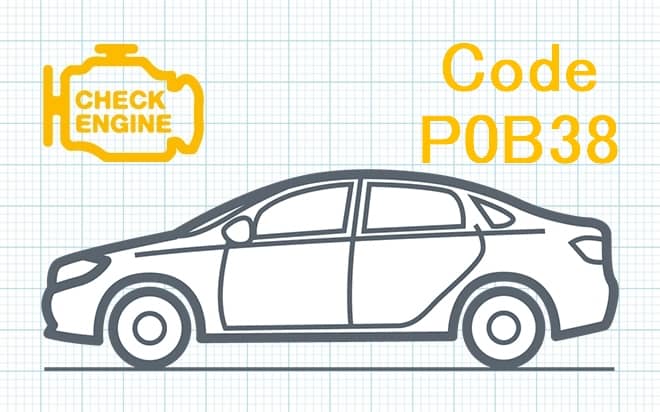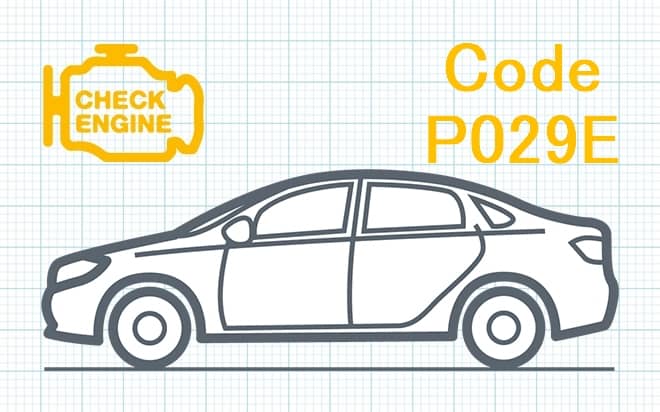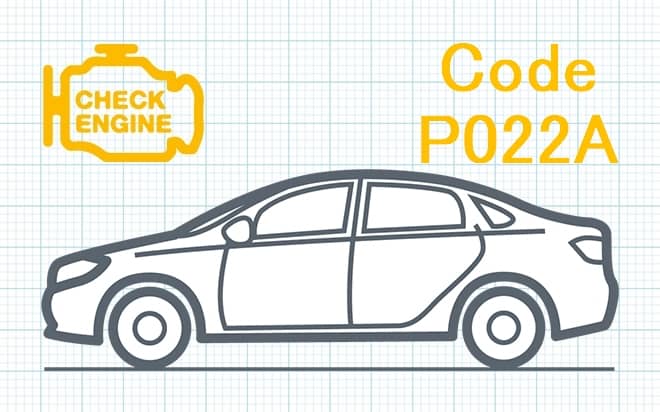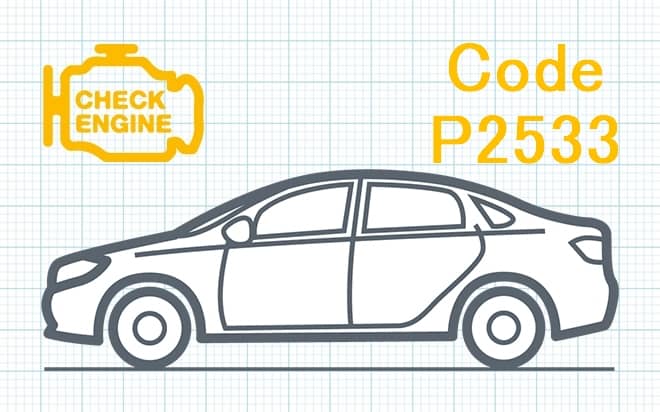Fault code P0149 is called “Fuel Timing Error” but in different programs it may be called differently. This fault designation applies to all vehicles equipped with OBD-II.
Technical description and explained code P0149
Stored code P0149 means that the control module (PCM) has detected a problem in the fuel pump timing sequence. This error is used exclusively on vehicles with diesel engines.
Most modern diesel engines use a mechanical fuel pump which is driven directly from the crankshaft. To overcome the high compression ratio characteristic of diesel engines, this type of pump is driven in series with the crankshaft position. To provide a high injection pressure pulse at a precise point and interval for each engine cylinder.
The fuel pump is usually small, so it can be placed under the intake manifold. It contains a low-pressure pump, a high-pressure pump, a fuel timing solenoid, and a fuel pressure control actuator.
The fuel pump is rotated by a sprocket that is aligned with the sprocket on the front of the crankshaft. The timing of these two sprockets is critical to the timing of the fuel pump and fuel delivery.
If both sprockets are offset by at least one tooth, fault code P0149 may be set.
The PCM uses input data related to engine RPM and engine load to calculate timing advance. The electronic fuel phasing solenoid is controlled by the PCM and allows direct injection timing advance based on engine RPM and load.
The electronic fuel pressure regulator is also controlled by the PCM and is responsible for controlling fuel pump pressure. The fuel pressure sensor monitors fuel pressure while the engine is running and provides the PCM with the actual reading. So it can continue to schedule the fuel pump and monitor the fuel pressure requirements.
If the PCM detects a fuel pressure input indicating a fuel pump phase problem. Then code P0149 will be stored and the malfunction indicator light may illuminate.
Symptoms of vehicle malfunctions
The main signal that an error P0149 has occurred is the Malfunction Indicator Lamp (MIL) is also known as the CheckEngine Light.
It can also be warning signs such as:
- The “Check engine” control lamp on the control panel will light up (the code will be memorized as a fault).
- Other related fault codes may also be present.
- The engine stalls or starts poorly.
- There is a strong odor of diesel fuel
- Decreased power output of the engine.
- Increased fuel consumption.
- Excessive smoke from the exhaust pipe.
- Emergency engine shutdown may occur.
The severity of error P0149 is high, the cause should be eliminated as soon as possible. The malfunction may result in poor performance and engine damage.
Factors that can cause this error code
The error code P0149 can mean that one or more of the following problems have occurred:
- Defective timing solenoid.
- Incorrect timing markings on transmission sprockets.
- Faulty fuel pressure sensor.
- Leak in high pressure fuel system.
- Damaged fuel line.
- Fuel control actuator is defective.
- Fuel pump malfunction.
- Damaged connector or wiring problem.
- Excessive resistance in electrical circuit.
- Sometimes faulty PCM module is the cause.
How to fix or reset OBD-2 code P0149
Some suggested steps for troubleshooting and fix the error code P0149:
- Read all stored data and error codes with an OBD-II scanner.
- Clear the error codes from the computer memory.
- Test-drive the vehicle to find out if error P0149 appears again.
- Check the high-pressure fuel system for leaks.
- Visually inspect the connector and electrical wires for damage. If present, repair the damaged areas.
- Check the resistance to make sure it is within tolerance.
- Test the fuel pressure sensor.
- Test the power relay and PCM module.
Diagnose and repair of problems
Locate the fuel pressure sensor, once found, visually inspect the connector and wiring. Look for scuffs, exposed wires, burn marks, or melted plastic. Disconnect the connectors and carefully inspect the terminals inside. Check them for rust and other damage.
Remove the P0149 diagnostic trouble code from the memory, test drive it and see if it comes back again. If it’s gone, the problem was in the wiring or connection.
If the fault code returns, we will need to test the sensor and associated circuits. In addition, we need to test the high pressure system for leaks.
Leak check
If a strong diesel odor is present, there is a high probability that pressure loss due to a leak is the cause of the problem. If a fuel leak is detected, the fuel filters and other components that have been recently replaced should be carefully inspected before proceeding.
If there are no leaks and the fault code has been reset, use a fuel pressure gauge to check the fuel pressure.
When the actual fuel pressure does not meet the manufacturer’s specifications, there are several reasons. These include a faulty fuel pump, a clogged fuel filter, or a bad fuel pump relay.
You can check the fuel pump operation by using a multimeter to check the voltage at the connector when voltage is applied. If voltage is present but the fuel pump does not work, it is likely faulty. If there is no voltage at the fuel pump connector, there is most likely a faulty fuel pump, relay, or wiring problem.
Checking the fuel pressure sensor
The fuel pressure sensor is usually wired with a 5 volt reference signal and ground. The variable resistance fuel pressure sensor closes the circuit and provides a pulse signal to the PCM.
Check the reference voltage and ground at the fuel pressure sensor connector with a multimeter. If there is no reference voltage on the sensor connector, check the parallel circuits on the PCM connector.
If no reference voltage is detected on the PCM connector, the problem may be a faulty PCM or a PCM programming error. But consider a faulty PCM as the main cause of error P0149 only as a last resort.
On which vehicles does this problem occur most frequently
Fault code P0149 can occur on different vehicles but there are statistics on which brands this occurs most often. Here is a list of some of them:
- Audi
- Chevrolet
- Dodge (RAM)
- Ford (Focus, Transit)
- GMC
- Honda
- Hummer
- Jeep (Grand Cherokee)
- Opel (Vectra, Zafira)
- Volkswagen
Fault code P0149 can sometimes be found with other errors. The most common are the following: P0148, P0168, P0169, P0170, P0173, P1491, P1494, P1495, P1564.





